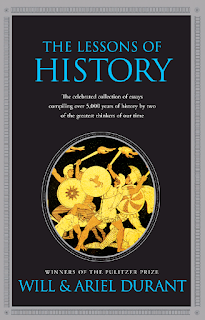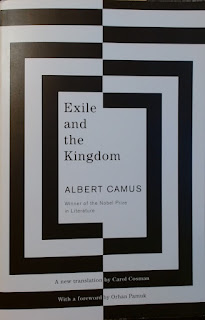Is This An Overview?
There are aspects of life in which people want diversity of
views, with disagreement expected. But,
when the expectation is that the decision makers are supposed to provide a
similar judgement within similar contexts, the diversity of views is
harmful. These are noisy
judgements. While biased judgements are
systematically off, noisy judgements are those in which agreement is expected
but not attained.
Whether in a public or private organization, their
representatives are meant to provide a similar product no matter who is using
their service. In practice, those using
their services enter a lottery as to whom they receive as a
representative. The outcomes depend on
who is asked, for the person can receive someone favorable or unfavorable to
them. Leading to very different outcomes
for people within similar circumstances, rather than the expected reliable
judgements.
Noise is the unwanted divergent judgements. Noise is more disagreement in a system than
what is expected. Noise leads to
unfairness in society, and a loss of profit for firms. Decision hygiene is meant to reducing noise
which leads to better decision making.
There are practical steps that everyone can take to reduce the amount of
noise in the system, and take a noise audit to find out how much noise there
is.
What Is An Example of Noise?
Judges are expected to deliver similar sentences to similar cases. But, there is a lot of noise in the sentences
that judges make. Judges use their
discretion to tailor the sentence with various factors. Although this discretion is meant to enable
better outcomes, the discretion also creates discrimination due to arbitrary
cruelties.
The noisy sentences received attention, leading to sentence
guidelines. The guidelines reduced
noise, but judges objected due to their lack of discretion. When the guidelines were removed, noise came back
into sentences given. This created law
without order.
How To Understand Noise?
A judgement is the conclusion. It is a process of mental activity and the
product. A judgement is never
certain. It includes reasonable disagreement. A judgement has an expectation of bounded
disagreement. The amount of disagreement
that is acceptable depends on the problem.
Large disagreement violates expectations of fairness and consistency
when representatives of public or private institutions are meant to be
interchangeable and assigned quasi-randomly. Noise in the judgements are errors, and in a
noisy system, the errors do not cancel each other out.
Organization and people tend to maintain an illusion of
agreement, even though they disagree in their judgements. People tend to think that others share their
beliefs, that they understand reality the way the individual does. With naïve realism, people assume that there
is a single interpretation, which is rarely challenged. Organizations prefer consensus and harmony
over dissent and conflict. Procedures
are designed to minimize exposure to disagreement, and explain disagreement
away.
Noise is unwanted, and noise is not always unwanted. Variability in judgement is acceptable when
it comes to experiences with expected diverse views. Such as innovative solutions to problems, in
competition, and art.
Noise is undesirable variability in judgement to the same
problem, which does not apply to singular problems that are not repeated. But, there could be counterfactuals, as
different decision makers with the same competencies could have made different
decisions.
Why Is There Noise?
Noise can occur even with the same facts, as the same facts
on different occasions produce different results. It is not just different people that can have
different judgements, but also the individual.
Mood affects what the individual thinks, and how the individual
thinks. Making people less consistent
than they think.
Overconfidence in predictions reduces the quality of the
predictions. Perfect predictions are
impossible, but that does not prevent overconfidence in predictions. Experts tend not to do much better than
everyone else when making predictions.
What experts know is how to explain themselves and see the different
issues involved, but not make better predictions. Better forecasters tend to be those who
continuously update their beliefs.
People jump to conclusions based on little information while
believing that their views are based on appropriate evidence. Building evidence when a conclusion has been
made, rather than seek alternative explanations. People reply on empty explanations to enable
coherence of events.
People can have different views based on earlier
impressions. Judgements are affected by
prior attitudes. Interpretation of facts
depends on prior impressions. The affect
heuristic, also known as the halo effect, occurs when people use their emotions
to make decisions. Applying the same
favorable or unfavorable emotions to a person, even though the person is
complex.
How To Reduce Noise?
Decision hygiene is the term meant to indicate when there is
an attempt to reduce noise. This can
include sequencing information, independent assessments, referencing the
outside view, and aggregating various independent judgments. A noise audit can be used to understand the
amount of noise in the system. Within a
noise audit, the same case is evaluated by different individuals.
When making a collective decision, better to apply a wisdom
of the crowd’s approach. To gain a
wisdom of the crowd, judgements need to be independent of others. Individual judgement needs to not be
influenced by other people’s judgements.
What influences judgement is popularity for popularity is
self-reinforcing as people do what they see others doing.
Simple rules are better than human judgment. Rules do worse when the person has decisive
information that the model did not consider, which is called the broken-leg
principle. The reason why rules do
better is due to the amount of noise in human judgement. Rules do better but they are not
perfect. Models do better, but not by
much. Resistance to rules tend to be
that humans are allowed to err, while machines are not given that permission.
Rules are complicated.
Rules try to eliminate discretion, while standards provide
discretion. Some rules restrict behavior
without specifying the behavior. This
creates a problem of arbitrary decisions.
But if the behavior would be specified, then people would be able to
behave in inappropriate manner with behavior not covered by the rule.
Not all noise needs to be removed. Removing noise can be costly, create their
own errors, reduce dignity, and noise can be needed for evolution of values.
Caveats?
Some parts of the book are related
to the authors prior works. The prior
work is referenced, without going into detail.
There is a bit of statistics, which could be better understood by those
who already have some knowledge of statistics.




